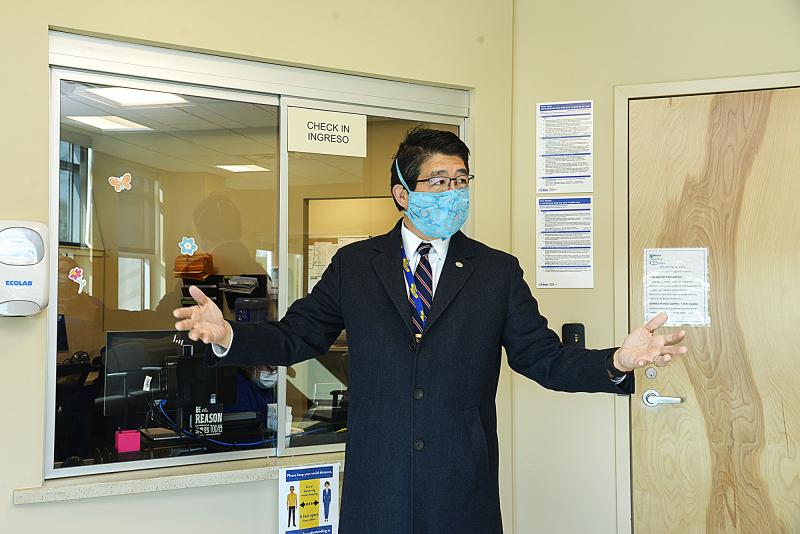Is there a spike coming this summer?
Beebe Healthcare President and CEO Dr. David Tam said he is not worried about a resurgence of COVID-19 cases later this summer as the Cape Region begins to reopen.
“At this point, I am not concerned about a spike,” he said during a May 27 interview. “I think we have been doing a great job with physical distancing and hand washing.
“Here in Sussex County, we’ve done a tremendous amount of testing, and the data shows we are doing well in terms of our infection rate.”
Nearly two weeks earlier, however, Tam talked about the number of cases peaking in August.
“This infection is not over. We still expect the peak to happen in August,” he said during a virtual town hall May 15.
Tam’s May 15 comments are in line with what data shows in the University of Pennsylvania’s CHIME Model, which ostensibly shows a peak in late July or August. Cheryl Hopple, Beebe’s emergency management coordinator, discussed the CHIME model’s prediction during the May 20 Lewes Board of Health meeting.
She said Sussex County had already deviated from the model once before, so it’s not 100 percent accurate.
“Take that with a grain of salt,” she said. “We just don’t know.”
Beebe Healthcare spokesman Ryan Marshall said he spoke with Beebe Healthcare infectious disease Dr. William Chasanov about the August peak, and he said it has nothing to do with hospitalizations or critical cases.
“The model is an estimation of total number of active positive cases,” he said.
On May 27, Tam said the peak remains, but it is much lower than it was predicted in the past.
“We’ve done the job of flattening the curve with the community, and the curve is not as high. It’s now broader and flatter.
“Why that is important at the end of the day is that it makes the peak more manageable,” he said.
Tam said continued testing will be paramount moving forward.
“If we see a blip [in positive cases] that tells us we might see a blip again in terms of hospitalizations,” he said May 20.
On May 26, statewide hospitalizations dropped below 200 for the first time since April 12, when it reached 201. In Sussex County, there were 37 reported hospitalizations May 26, down from the peak of 84 on May 14.
The highest number of hospitalizations reported statewide during the pandemic was 337 on April 27.
Gov. John Carney said that the downward trends of positive COVID-19 cases and hospitalizations are indicators that the situation is improving.
“The best model that we have is the data that we have in front of us, the trend over the last 14 days,” he said. “Ultimately, we stopped following the models from the outside, and just focused on our cases and what was happening in our hospital emergency rooms. That's the number that's current and real.”
The Division of Public Health is not making predictions on future COVID-19 cases based on models from other sources because there is a variability in those models, said Dr. Karyl Rattay, director of the Division of Public Health.
“What has come to be true is that human behavior is a big factor in what's influencing these models over time,” she said.
The state has recently embarked on an aggressive educational campaign to influence how people act when in a public setting, focusing on wearing face masks and staying an appropriate physical distance away from others.
Hopple said during the May 20 Lewes Board of Health meeting that the COVID-19 patient count at Beebe is declining, but the hospital census is staying consistent around 135 to 140 patients as people begin to come back to the hospital for non-COVID concerns.
“What we’re seeing now is patients that stayed away probably longer than they should have, and now they’re coming in sicker,” she said, noting some have said they were afraid to seek treatment at the hospital.
Tam said the Savannah Road emergency room and the new standalone emergency department in Millville have always been safe.
“We need people to come when they are sick,” he said. “If you’re not feeling well, you need to see your doctor; you need to be treated before you end up in the ICU.”























































